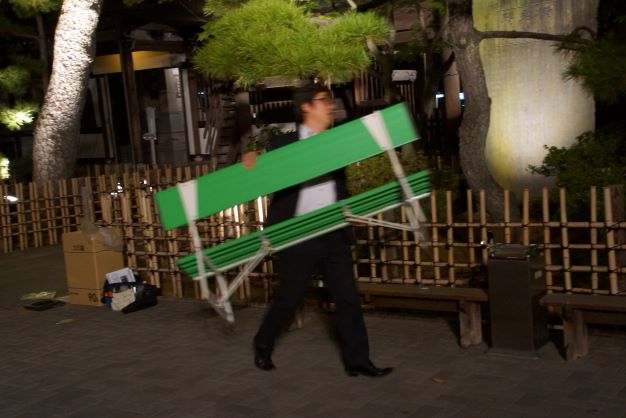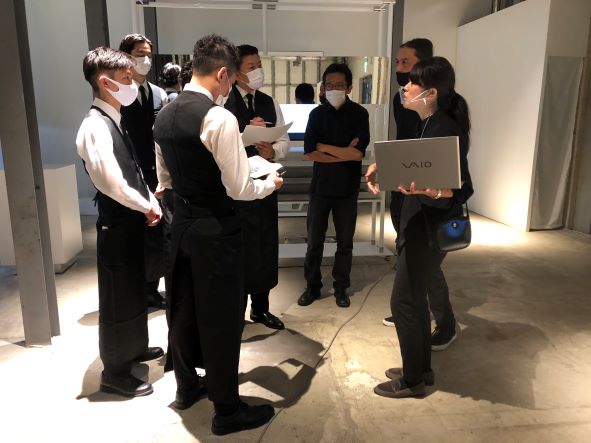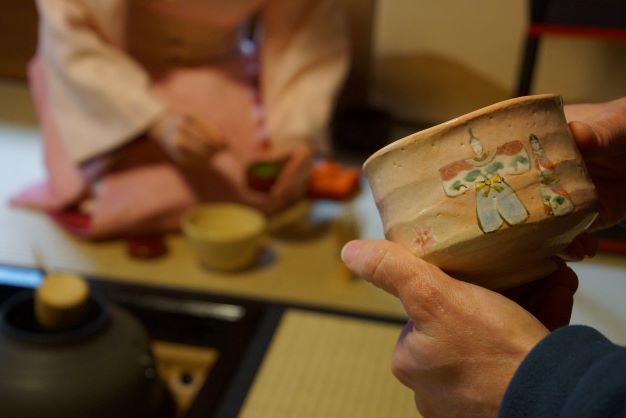Language, they say, can give deep and enlightening insights into a country, a people, and their (business) culture. The Japanese language has a particular fascination with concept of struggle, and with treating struggle as a great virtue. Therefore, let us arm you with some words and phrases that you’ll hear several times a day back-of-house at a business event.
At the end of each day, and even at the end of a given task within a day, it is compulsory to compliment your team with “otsukaresama”, which literally means, “you must be exhausted”, and contains the additional inference, “after your long and virtuous struggle today”. Although, if it’s been a real proper trial, you can consider using the more serious “gokurosama”, which implies dedication above and beyond, for much longer than anyone else would have put in the time or effort.
Which leads on to the majestic, “isshokenmei”. This phrase that describes someone doing their absolute best uses kanji characters that imply giving your entire lifeblood, your entire being, to the task in hand. This phrase can actually be written in two different ways in Japanese. One communicates the above “your whole life” meaning. The other suggests having done one’s best “in one place”, which gives another fascinating insight in to the Japanese sense of belonging that denotes not just a position of rank, but can, and often is, a geographical location too.
Other words and phrases oft-heard in the workplace, on sports teams, and on the street, which acknowledge and celebrate hard work towards any given goal: “taihen” (multiple meanings, but in this context, “that was difficult!”, “yabai” (this can mean either “that was bad!” or “that was good!”), “shindoi” (“that was tiresome!”), “muzukashii” (a range of nuance, but most often “that was/is difficult!”; and, in most business contexts, “it’ll never happen”). Enjoy dropping a few of these into your next business interaction in Japan!
To wider Japanese society, when processes might seem to be too straightforward, complications are delicately added to the system. It’s a great way of keeping you on your toes. Moreover, it’s a great way to keep all the “otsukare” and “taihen!” phrases in active use.
Half tongue-in-cheek, we sometimes like to describe society here as, “take something really simple, and work out how to complicate it as much as possible, then you have Japan”. Take a look at the tea ceremony, for example! It’s on the bucket list, just because it is such a ceremonial way of having a cuppa.
Whilst we enjoy seeing the quirky side of Japan that has been our home for decades, we also take this opportunity to assure you that when it comes to event planning and operation, we believe that you should never see any of the struggle that Japan imposes, virtuous or other. Let us keep that well-hidden from you.







